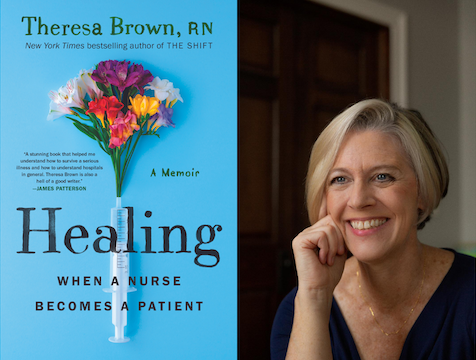
This article was published first on June 25, 2018, in Perspectives, a publication of the National Academy of Medicine. Follow them on Twitter @theNAMedicine
Nursing, Trauma, and Reflective Writing
The young nurse returned to room seven. Finishing up her charting just a moment earlier, she glanced at her watch and knew she couldn’t postpone going into his room any longer, despite the disconcerting vibe she got each time she went in there.
Room seven was still dark and the patient was still grinning. Glasses were still cloudy and eyes were still staring. Scanning the room, the young nurse realized that she and the doctor had left the place in shambles in their rush to escape. As she started to gather the waste, she noted a capped, pink syringe, the 20-gauger from the failed attempt [at IV insertion] earlier. The young nurse inwardly groaned. Had her manager made it in there before her, she would have never heard the end of it: You left a needle within reach of an encephalopathic patient?? What were you thinking?!
Well, she certainly was thinking now. She picked up the needle and felt a stab.
Jordana Kozupsky refers to herself in the third person in this excerpt from a narrative essay, “My Infected Reality,” that she composed in a writing course for graduate nursing students in 2015. Here, the nurse returns to the room of a patient infected with HIV who had violently resisted her and a physician’s earlier attempts at inserting an IV.
Did the needle pierce the patient’s skin before penetrating her own, thus exposing her to a serious infectious disease? She can’t be sure, and Jordana’s reality becomes infected by panic, flashbacks, and nightmares, leaving her unable to take the step of getting tested. Her writing explores an unfortunately common workplace trauma for nurses—needlestick and its aftermath—by echoing its disturbing effects on her life.
Continue to read the full article on Perspectives here:









